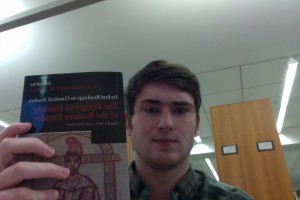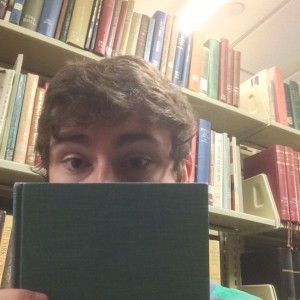North, John, and S. R. F. Price. The Religious History of the Roman Empire: Pagans, Jews, and Christians. Oxford: Oxford UP, 2011. Print.
Something that has always intrigued me has been the amount of influence a few theological interpretations can have on a religion. Growing up as a Christian, I remember learning about the Council of Nicea in my Religious Education classes and find it a little unsettling that one of the major foundations of Christianity (the Holy Trinity) was decided by a group of people. The fact that there was an open debate about it made me want to understand more how the final decisions were reached. In class we learned more about this and I think it would be an interesting topic to look at more closely the upcoming paper.
At first, I tried searching specifically on JSTOR for “Council of Nicea,” but I could only find online sources that didn’t seem to be what I was looking for. I decided to use a different wording that was more broad for my next search and typed in “Ecumenical Councils.” This still did not come up with the results that I was looking for. I figured I must have been searching too specifically, so for my next search I typed in “changes in Christianity.” This gave me plenty of choices that looked like they would have the information I needed. One book looked particularly appealing. It was titled The religious history of the Roman Empire : pagans, Jews, and Christians, which would most likely have more information about the Ecumenical Councils. Unlike my last Shelfie, this book was published in 2011 and had an appealing cover and was much more up to date.
After looking through the table of contents, I was able to see that there was a lot of different chapters on specifics of each religion and their position in the Roman Empire. Unfortunately, there was not a specific chapter about the Ecumenical Councils, but there were chapters on Christianity. By taking a closer look at some of these chapters, there was information about the councils. If I decide to write my paper about this topic, this book would be useful to gather a little more information, but another source would most likely need to be consulted.

